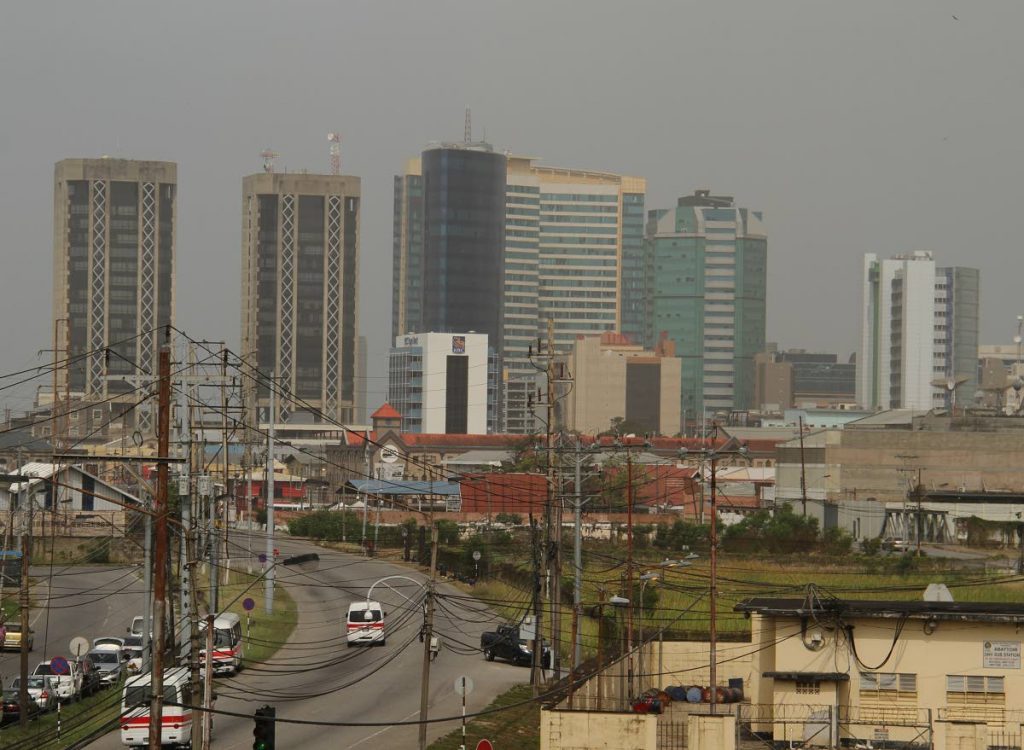S&P downgrades TT

INTERNATIONAL credit ratings agency Standard & Poor is concerned about TT’s ability to balance the 2020 budget, citing lower-than-expected energy production and economic growth that will weaken the Government’s revenue base.
In its country report released yesterday, the New York-based institution lowered the country’s long-term foreign and local currency credit rating from BBB+ to BBB, but held the outlook as steady, compared to negative last year. The short-term rating is held steady at A-2. S&P also revised down the country’s transfer and convertibility assessment to BBB+ from A. The classification still places TT in the investment grade tier, although on the lower medium grade rung.
S&P also noted longer-than-expected delays in institutional reforms needed to strengthen revenue collection and improve timely economic data. As a result, the agency “did not expect to see material dividends from these reforms in the near term."
"These factors weaken the country’s resilience against external shocks,” S&P said.
The agency’s stable outlook reflects its expectation that the Government’s large financial assets, including the Heritage and Stabilisation Fund, will continue to provide a fiscal and external safeguard, mitigating economic volatility.
As part of its rationale for a negative outlook, S&P raised concerns of economic growth not materialising to the degree it expects over the next two years, which could lead to lower per-capita income levels and, in turn, a weaker tax base for the State.
One positive noted in the report was that the investment-grade ratings continue to reflect TT’s favourable external profile and stable democracy. S&P noted the country’s accumulated savings over the past decade that stabilise the economy in the face of fluctuating commodity prices. “This is particularly relevant for TT given the economy's concentration in the energy sector, which represents over one-quarter of GDP, over a third of government revenues, and over 80 per cent of exports.”
Nevertheless, the sector's sharp downturn over the past several years and the limited effectiveness of policy response – particularly given a heavily managed exchange rate – which can pose risks to the country's ability to respond to shocks. “Our ratings also reflect the country's poor long-term growth performance, with a per capita GDP contraction of 0.4 per cent on average over the last ten years.”
The energy sector has detracted from economic growth, S&P said, and it expected this trend to continue in 2019. “We estimate that real GDP grew by about 0.8 per cent in 2018 and will increase 0.4 per cent in 2019.”
Last month, Moody’s, another international credit rating agency, held the country’s credit ratings stable, upholding its Ba1 rating, although that rating is considered speculative (junk bond) status.
Regional rating agency , the Caribbean Information and Credit Rating Services Limited (CariCRIS) also on Tuesday reaffirmed its “high” CariAA+ rating for the TT government, indicating a high level of creditworthiness of its US$500 million debt obligation, adjudged in relation to other obligations in the Caribbean. CariCRIS also maintained a stable outlook on the ratings.


Comments
"S&P downgrades TT"